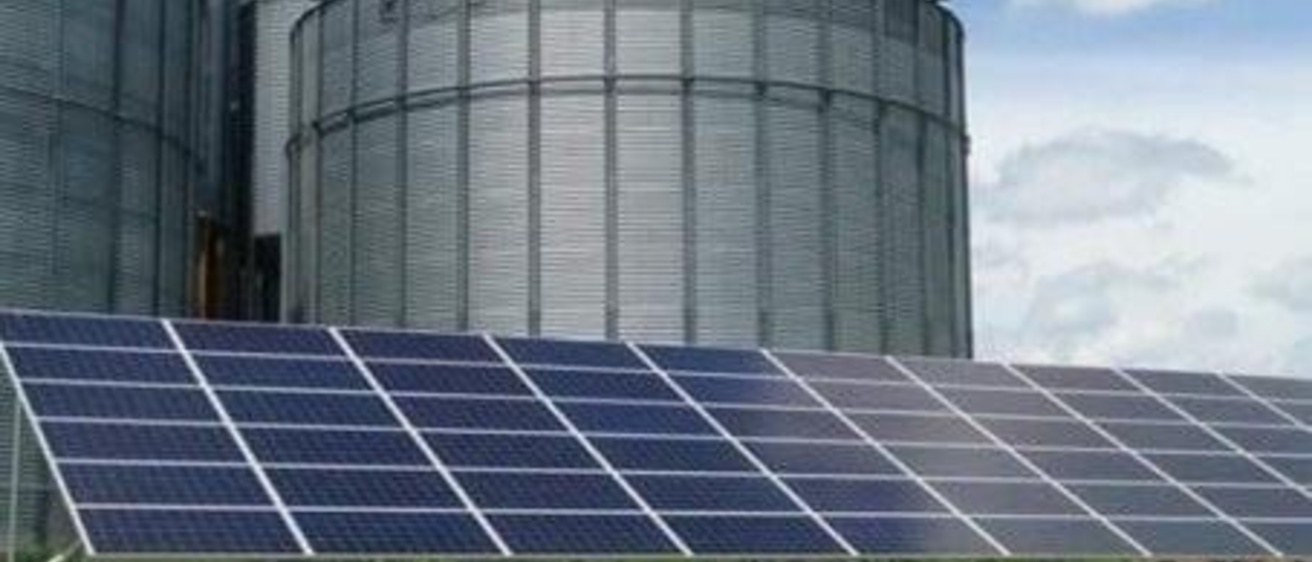Federal infrastructure and science policies are calling for “moonshot” projects to ensure carbon-free energy infrastructure to combat the anticipated large negative impacts of climate change. Iowa’s abundant wind, bioenergy and solar resources make it a strong player in the emerging green energy landscape. By 2040, Iowa can become a net exporter of energy. Achieving net export status will bring energy independence to Iowa and will attract industries supplying and demanding clean energy. However, to achieve its potential Iowa needs to accelerate research, development, and adoption of low-carbon energy production and storage methods. These technical elements must be coordinated with workforce development, innovation ecosystem, and public policy. The pace and scale of the transition will be significant, amounting to more than 10% of GDP per year combining contributions from transportation, electricity, fuels, industry, construction, agriculture, and building operation sectors.
Combining engineering, data science, public policy, environmental science, and business expertise, we will develop large proposals around the central question: how can R&D, education and outreach, markets, & socio-economic policy shift evolving barriers & attitudes towards adoption of carbon management practices & energy technologies? A number of partner organizations (business, local government, campus partners, agricultural partners) are identified in the proposal that are enthusiastic about guiding and participating in the project. Together, these efforts will position the University of Iowa for future grants, contracts, and leadership roles in the rapid decarbonization transition.
Research Team: PI: Charles Stanier (Chemical and Biochemical Engineering, Engineering), Co-PIs: Jerry Anthony (Urban and Regional Planning, Graduate College), Marc Linderman (Geography and Sustainability Sciences, CLAS), Wei Li (Finance, Business), Collaborators: Ion (Bodi) Vasi (Sociology), Sara Maples (Business), Xun Zhou (Business Analytics), HS Udaykumar (Engineering)
Partner Organizations:
- State Government
- Iowa Economic Development Authority
- Energy Companies
- University of Iowa Energy Collaborative
- Moxie Solar
- Agriculture
- Practical Farmers of Iowa
- Iowa Farmer’s Union
- Local Government
- Linn County
- City of Dubuque
- City of Bloomfield
- University of Iowa
- Iowa Initiative for Sustainable Communities
- University of Iowa Office of Sustainability and Environment
Research Questions:
- Realistic options for low-carbon cost-effective heating of buildings in the upper midwest.
- How do residential and commercial property/building/landowners make decisions about solar adoption?
- How do behavioral economic principles of decision-making in the presence of uncertainty play out in renewable energy?
- How do these issues influence the viability of rural communities?
Upcoming Events:
- On the Front Lines of Energy Storage Deployment (Dec. 8, 2021, 2:30-3:30)
Over the last 15 years, component cost reduction and technology improvements in both wind and solar power have led to a transformation of the US energy sector. Renewable power has eclipsed coal, and its Levelized Cost of Energy is now competitive with natural gas generation - even without subsidies. But actually phasing out fossil fuel generation requires a cost-competitive solution to the time- and location-based intermittency of wind and solar generation. Battery energy storage is poised to become a central part of that solution in our race to decarbonization.
But for all the promise of, and need for, Battery Energy Storage Systems (BESS), it remains very much an emerging technology. Not because the battery technology is new, but because of the market fundamentals that drive (and in some cases, hinder) BESS deployment. In this session, a leading developer of utility- scale BESS will share the front line industry perspective on how BESS are actually integrated into today’s electric grid, what job(s) they do best, and what’s holding them back from broader, faster deployment. Topics will include grid interconnection, the “revenue stack” created by various use cases, BESS development and community response, safety, and supply chain trends.
With an understanding the market fundamentals that drive BESS industry, proponents of decarbonization will be better equipped to champion effective solutions.
Speaker Bio: Erin Hazen (she/her) is a renewable energy executive with 14 years of experience in the wind, solar, biomass, and energy storage sectors. She has led the acquisition, development, interconnection, and construction of complex utility-scale renewable energy projects, and has comprehensive understanding of energy project permitting, real estate acquisition, generation technologies, energy policy and economics and power marketing.
Working for GlidePath Power Solutions, a leading US developer with an energy storage development pipeline greater than 4 gigawatts, Erin directed the development and acquisition of stand-alone battery energy storage and solar+storage projects in New York and on Guam. She has just joined Greenleaf Power, a California-based IPP as Vice President of Development, where she will build out a new portfolio of biomass-fueled and stand-alone energy storage projects.
- Decarbonization and rural communities (Jan. 2022, TBA)
A panel discussion on the intersection of decarbonization and rural agricultural communities. What are the decarbonization/energy independence challenges, opportunities, barriers, and successful strategies specific to rural communities. How do these intersect with rural-urban equity issues?
- Hawkeye Decarbonization Summit (April 21 and 22, 2022)
A two-day meeting bringing together Decarb2040 partners, the University of Iowa community of researchers, staff and students interested in decarbonization, practitioners, and funding agency representatives to explore the path forward.
